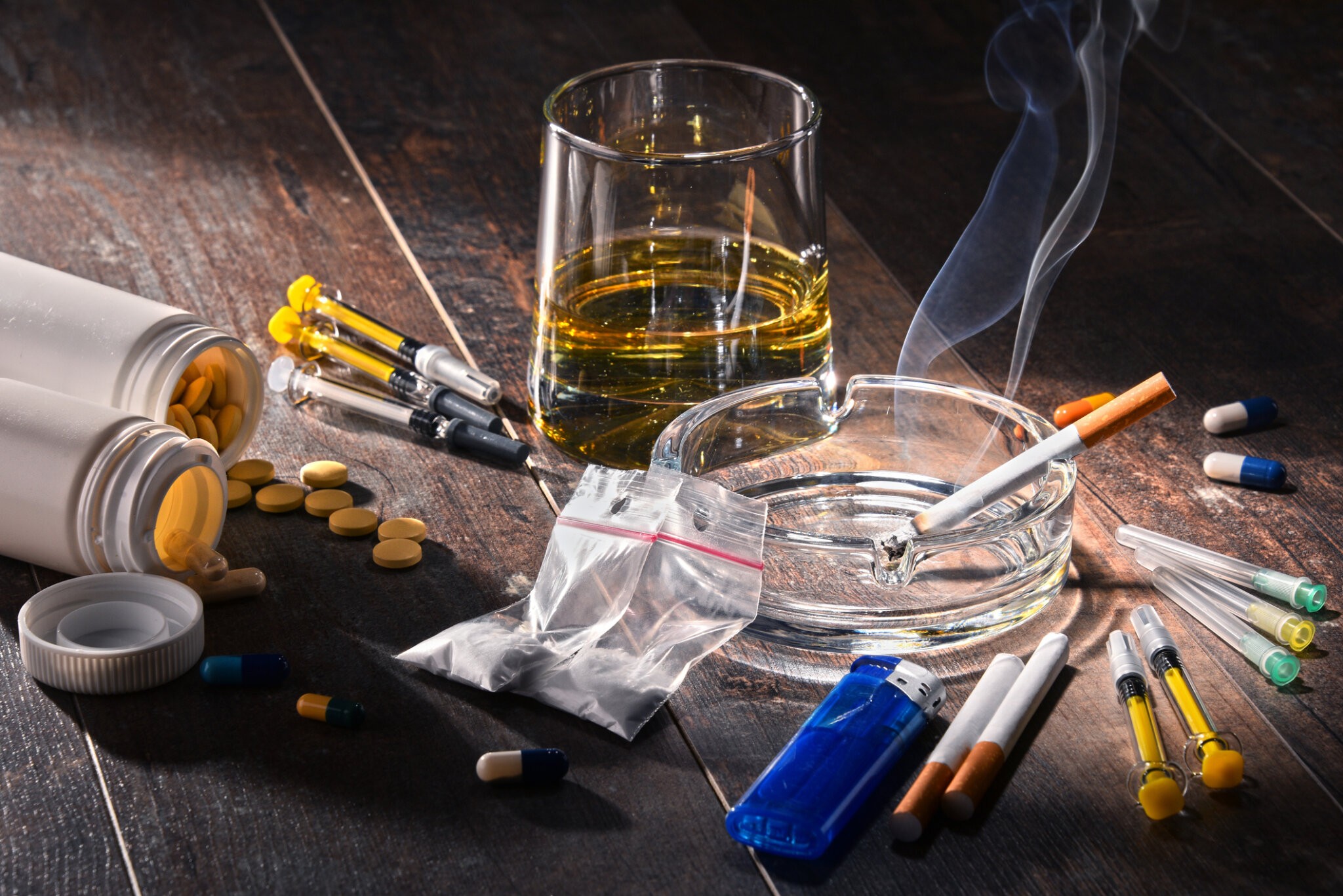Ask Beatty: Americans Are Finding More Ways to Avoid Dealing with Their Problems

From the seemingly intractable and endless wars and conflicts around the world to the dire warnings of worldwide imminent ecological disaster, from the deeply rooted structural violence of poverty to the disproportional racial and minority suffering at home, it’s no wonder that many Americans (rich and poor alike) are trying to find ways to escape their problems.
According to the Centers for Disease Control and Prevention (CDC), the mental health crisis hitting Americans shows no signs of abating. Between 2000 and 2018, the suicide rate among youth ages 10 to 24 rose from 6.8 per 100,000 to 10.7 per 100,000. Rates of depression for women during their lifetimes climbed from 26.2% in 2017 to 36% in 2023. And although it’s estimated that over 6 million men suffer from depression per year in the U.S., male depression is often misdiagnosed or massively under-diagnosed.
More and more people are looking for and are finding ways to try and escape dealing with their feelings of depression, anxiety, suicidal thoughts, shame, loss, worthlessness, guilt, fear and loneliness through the use and abuse of pornography, drugs (legal and illicit), shopping, gambling, sex, food and excessive use of our devices. The reality, however, is that even though they might experience a rapid high from one or all of these activities, the high will rapidly wane unless people are willing to acknowledge, address and resolve, as best as they can, the underlying issues that are causing them to want to escape in the first place.
Pornography: More people view internet pornography every month than Netflix, Amazon and X (formerly Twitter) combined. In 2023, people watched 4.6 billion hours of pornography on one of the more than 42 million porn websites, and 17.8 trillion hours of pornography are consumed every year globally. Around 46 million U.S. adults watch porn frequently online, and 4% of men and 1% of women believe that they may be addicted to pornography. Men watch pornography for 7.5 to 25 minutes a day, which translates into one to three hours a week, and 87% of men between 18 and 35 report watching porn on a weekly basis. About 93% of boys are exposed to porn in some form before they turn 18.
Ashley Madison: Ashley Madison is one of many dating sites for married cheaters. It appeals to unhappily married couples looking to cheat without drama or personal risk. Its slogan is: “Life is short. Have an Affair.” Currently, Ashley Madison has over 70 million users worldwide. This makes it one of the largest dating platforms for individuals seeking extramarital affairs. As with porn and other vices, it is a diversion that has potentially serious consequences and risks.
Technology: Globally, people average six hours and 58 minutes of screen time every day. The average American spends seven hours and four minutes looking at a screen each day, and 60% of adults said that they sleep with their phones. The average teen spends eight hours and 39 minutes plugged into various devices.
Substance Abuse: According to the National Center for Drug Abuse Statistics (NCDAS), the percentage of people who were classified as having a substance use disorder, including alcohol use and/or drug use, was highest among young adults ages 18 to 25. Approximately 20.4% of Americans have an alcohol use disorder. Around 50% of people 12 and older have used illicit drugs in their lifetime. Approximately 18.7% of adults 18 and over regularly use marijuana, and 10.1% of youth ages 12 to 17 use marijuana. Drug overdose deaths in the U.S. since 2000 are nearing 1 million. About 22% of males and 17% of females used illegal drugs or misused prescription drugs within the last year. Drug use is highest among persons ages 18 to 25. A staggering 47% of young people use an illegal drug by the time they graduate from high school: 5% of 8th graders, 20% of 10th graders and 24% of 12th graders. Around 13.5% of Americans 12 and older have used illicit drugs in the past 30 days. Also, 25% of all users of illicit drugs suffer from drug dependency or addiction. Prescription drug abuse is the nation’s fastest growing drug problem and has been classified as an epidemic by the CDC.
Food Addiction: According to the most recent research from the University of Michigan, 14% of adults and 12% of children in the U.S. have a food addiction. Every one in eight Americans over the age of 50 is addicted to highly processed foods, like sweets, salty snacks, sugary drinks and fast food. More women than men met addiction criteria, and the percentage also was higher among those who were overweight or felt isolated from others and those who described their physical or mental health as “fair” or “poor.”
Shopping Addiction: Stanford researchers found that 6% of women and 5.5% of men had symptoms consistent with compulsive buying disorder, which is strongly associated with shopping addiction. In fact, research from the University of Iowa reported that 84% of young adults who suffer from shopping addiction report a family history of mental health disorders, such as mood or anxiety disorders.
Gambling Addiction: Gambling disorder is a diagnosable, chronic mental health disorder, much like drug or alcohol abuse. According to the National Association of Addiction Professionals, problem gambling has the highest suicide attempt rate (up to 20%) of all addictions. The North American Foundation for Gambling Addiction reports that approximately 2.6% of the U.S. population has some type of gambling issue. Compulsive gambling is more common in younger and middle-aged people. Gambling during childhood or the teenage years increases the risk of developing compulsive gambling. According to research, the problem is only getting worse thanks, in part, to the growing popularity of online gambling and sports betting at in-person casinos and websites like FanDuel and DraftKings.
Sex Addiction: Although the statistics on sex addiction are difficult to determine accurately, according to research from the University of Minnesota, 10.3% of American men and 7.0% of American women experience distress and/or impairment from difficulty controlling their sexual feelings, urges and behavior. Like with other addictions, sex addiction usually stems from trauma, causing a person to seek sexual gratification as a coping mechanism for unresolved trauma. Approximately 81% of sex addicts were abused sexually, 97% reported having been abused emotionally and 72% were survivors of physical abuse.
WHAT ARE YOU GONNA DO?
If you discover that some of these vices are getting in the way of your life and relationships, it might be time to seriously consider getting some professional help that will enable you to begin to live your life to the fullest — with honesty, integrity and inner peace. If not now, when?

Beatty Cohan, MSW, LCSW, AASECT is a nationally recognized psychotherapist, sex therapist, author of For Better for Worse Forever: Discover the Path to Lasting Love, national speaker, national radio and television expert guest and host of the weekly “Ask Beatty Show” on the Progressive Radio Network. She has a private practice in NYC and East Hampton.
Beatty would love to hear from you. You can send your questions and comments to her at BeattyCohan.msw@gmail.com. For more info, go to beattycohan.com.



